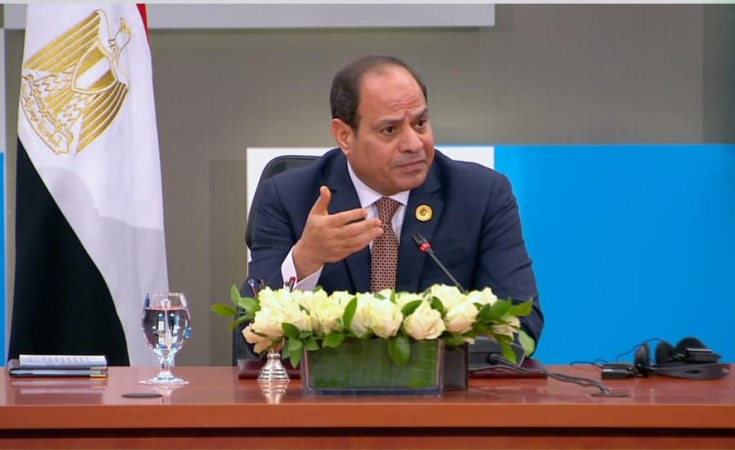Cairo — Egyptians headed to the polls Sunday for the first day of a three-day presidential election in which four candidates -- including incumbent President Abdel Fattah el-Sissi -- are running. El-Sissi, who has held the top post since being elected in 2014, is widely expected to win. The election comes as Egypt faces serious economic problems and outside pressure from the conflict in Gaza.
A festive mood prevailed Sunday as residents in Cairo's upscale Zamalek neighborhood watched people lining up to cast their ballots outside a polling station. Observers from several political parties stood outside to keep tabs on what was taking place.
Prime Minister Mostafa Madbouly cast his vote in Egypt's new administrative capital early Sunday. The government built the new capital outside of Cairo and is trying to move its ministries and institutions there.
Madbouly told journalists that he was pleased to be voting in the newly built capital, which was just a "dream on a map" not too many years ago.
He said that hundreds of people were outside the polling station in the new capital, exercising their right to vote, adding, ''We are all working hard to build a better future for our children and grandchildren.''
Egyptian state media showed President el-Sissi casting his ballot at a polling station near the presidential palace Sunday morning. El-Sissi has served two terms since he was first elected in 2014. A constitutional amendment passed in 2019 allows him to run for a third term.
Khattar Abou Diab, who teaches political science at the University of Paris, told VOA that the three candidates running against el-Sissi are weak, adding that the election is more of a referendum on the president's popularity, and that given the current regional and international conditions, everything seems to be weighing in favor of el-Sissi remaining in office. He said that the stability of Egypt remains important for the future of the Middle East region and that no one really wants to see any disruptions in Egypt for the time-being.
Said Sadek, who is a professor at Egypt's Japanese University in Alexandria, told VOA that the security situation in the country is weighing heavily on most voters' minds right now and will likely influence their decision.
"Before the 7th of October of this year (Hamas' attack on Israel) the main issue was really economic: people were not happy with inflation, rising prices, the rising foreign debt, which is over $166 billion. Then, the 7th of October occurred and this idea that [Israel] will transfer Palestinians into the Sinai, so the issue of national security began to overtake [that of] the economy."
Israel vowed to destroy Hamas, which governs Gaza, after the militant group sent fighters rampaging into Israel on October 7, killing around 1,200 people, mostly civilians, according to Israeli tallies. Hamas, which has been designated a terrorist organization by the United States, the United Kingdom, the European Union, and others, also took about 240 people hostage.
"Now people see," Sadek added, "that it is not easy to find a replacement for Sissi, when the borders of the country are on fire."
Paul Sullivan, a Washington-based Middle East analyst with the Atlantic Council, told VOA that while it appears "highly likely that President Sissi will win the election, the country is in difficult economic times (and) is stressed strategically by the Gaza war and other instabilities surrounding Egypt in its very difficult neighborhood."
Sullivan added, "Many Egyptians are suffering, (but that) it does nobody any good to criticize without giving any solutions." He believes that it "will take time for Egypt to get back to better times," but that "solutions are there (to be found)."
Results of the presidential election are not expected to be announced until December 18.


